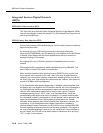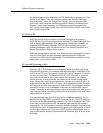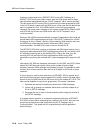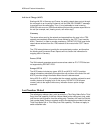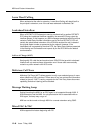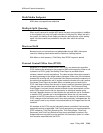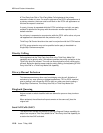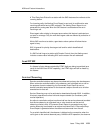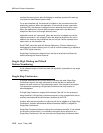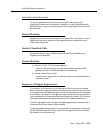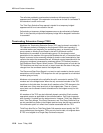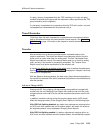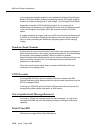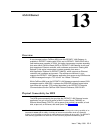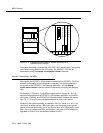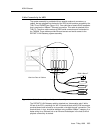
ASAI and Feature Interactions
12-52 Issue 7 May 1998
receives the warning tone
after
the bridging is complete (provided the warning
tone option is administered system-wide).
For a user-classified call, the observer is bridged on the connection when the
destination answers. When the destination is a trunk with answer supervision
(includes PRI), the observer is bridged on when actual far-end answer occurs.
When the destination is a trunk without answer supervision, the observer is
bridged on after trunk cut-through (timeout) event.
Applicable events are “connected” (when the observer is bridged on) with the
observer’s extension, and “dropped” when the observer drops from the call. In
addition, the observer may manipulate the call via Call Control requests to the
same extent as via the station set.
Send DTMF cannot be used with Service Observing, if Service Observing is
administered to receive warning tone. If a call is in service observing, a request to
send DTMF digits is denied.
Single-Step Conference is allowed into a call that is being Service Observed
without affecting the Service Observer.
Single-Digit Dialing and Mixed
Station Numbering
A call initiated using the Third Party Auto Dial capability is permitted to use single
digit dialing.
Single-Step Conference
If multiple associations are involved with the resultant call after Single-Step
Conference request, the other associations (those that did not request the
feature) will each receive a Connected event report, if the request is successful.
The association requesting a Single-Step Conference will only receive an
acknowledgment.
A Single-Step Conference request will be denied if the call is in the process of
being classified. A Single-Step Conference request is only accepted after the far
end has answered and the call has been delivered to the ECS.
A station with manual origination Line Service will not be eligible for a Single-Step
Conference. A station administered Without Hardware (AWOH) is eligible for
Single-Step Conference.
Single-Step Conference does not change the conference controller, if one existed
for the active call previously. If a conference controller did not exist prior to a
Single-Step Conference, it will not exist after the Single-Step Conference either.



